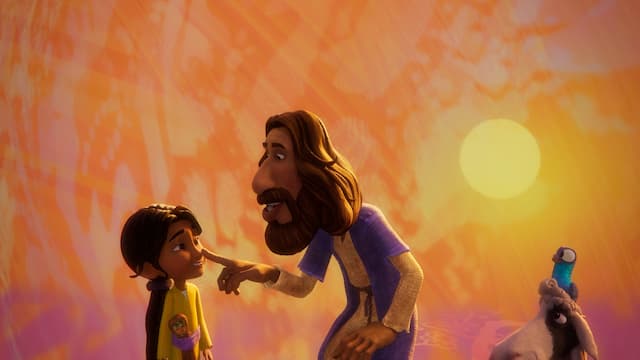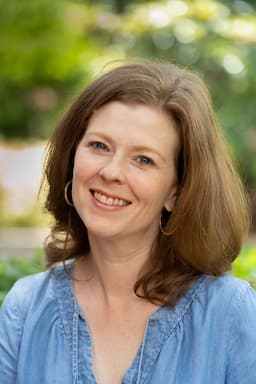The Danger of Being Blissfully Lost
 Cycling is great exercise. For many years, I loved to grab my bike and just ride—20 to 40 miles a day depending on my free time. I was never one of those serious riders going for speed, endurance, the next triathlon, whatever. I just loved to ride.
Cycling is great exercise. For many years, I loved to grab my bike and just ride—20 to 40 miles a day depending on my free time. I was never one of those serious riders going for speed, endurance, the next triathlon, whatever. I just loved to ride.
I miss riding too, but ongoing shoulder pain and issues from an accident that rewarded me with three broken bones dictated I switch to something tamer.
One Saturday morning, I chose a new route. This was a couple of years before I got GPS, so I studied the map prior to leaving. I studied and studied the map, so off I took.
It was a great day for riding too. Nice weather, mild temperature, and nice roads. I was thoroughly enjoying myself as I rode past Page High School in Williamson County. Still enjoying myself, a thought entered my endorphin-fueled brain: “I didn’t realize Page High School was this far over in the county.”
I had never been to the school before; I only knew it by name. But out of curiosity, I stopped, pulled out the map and … HOLY COW! I’M NOT ANYWHERE NEAR WHERE I THOUGH I WAS!
I was blissfully lost and didn’t know it.
I read the map, got my bearings, and kept riding. The good news is that I created a new 36-mile loop that became one of my regular routes.
A lot of people are blissfully lost. They think they’re doing good; they think their actions are putting them in right standing with God. Or at least they’re not doing anything bad—y’know, really bad—that would move them off God’s nice list.
“Lost” is one of those words we use a lot in church settings—almost as much as the word “casserole”—and it’s an apt word to describe those who don’t have a relationship with Christ. But outside the church, the word means something wholly different. Most people don’t think of themselves as lost.
 Being lost on a Trek bicycle is one thing; being lost in your relationship with God is quite another. People need to be aware they are lost, but how we make them aware of that fact can make all the difference.
Being lost on a Trek bicycle is one thing; being lost in your relationship with God is quite another. People need to be aware they are lost, but how we make them aware of that fact can make all the difference.
Several years ago, I was in Anaheim at a convention. As I left the convention center, a guy was standing outside hoping to talk to folks. He had on a black T-shirt that read: JESUS LOVES YOU … BUT HE WILL KILL YOU. This may surprise you, but there was not a line of folks waiting to talk to him. In fact, people avoided him.
Side Note: Jesus doesn’t kill anyone; sin does. Our sin faces the wrath of God, and as long as we are tied to our sin, we are under God’s wrath. Under sin’s dominion, we are far away from God. So far from God, we’re lost.
That’s a hard truth to hear, but without Christ, people are lost in darkness. Nevertheless, we are called to expose their lostness—their darkness.
“Don’t participate in the fruitless works of darkness, but instead expose them” (Eph. 5:11).
I suppose we could go old-school and preach hell, fire, and brimstone, telling them how lost and condemned they are. I contend there’s a far better way, and it’s in this same passage in Ephesians 5. Let me back up a few verses.
“Walk as children of light—for the fruit of the light consists of all goodness, righteousness, and truth—testing what is pleasing to the Lord. Don’t participate in the fruitless works of darkness, but instead expose them” (Eph. 5:8-11).
Do you see it? If you get up at 2:00 a.m. for a snack, you turn the light on to make your way through the house (unless you don’t want your wife to know you’re going for another snack). The darkness dissipates when the light is turned on.
We can try to expose the darkness by yelling about it … or we can “walk as children of light.” When believers live lives full of love, integrity, and transparency, we are shining the light of Christ. People can see there’s a difference in how we live; their darkness and lostness is exposed.
We still need to tell them—actually speak words!—about Jesus and His salvation—but we have laid a much better foundation for our words. They are more receptive because they’re now hearing a truth that’s been lived out before them. Yes, they are lost, but when we model and show them the joy of living in the light, they’re far more likely to say yes to a life in Christ.
Instead of solely makingBlissfully Lost a big deal about their lostness, let’s make a big deal about Jesus.
Subscribe to this blog at the top of the page! And encourage others by sharing this post.
For a printable version: click here.
 This
This  post supports the study “Holy Vocabulary: Lost” in Bible Studies for Life and YOU.
post supports the study “Holy Vocabulary: Lost” in Bible Studies for Life and YOU.
NEW FEATURE: Podcast
Join Lynn Pryor and Chris Johnson as they discuss this topic.
https://ministrysites.s3.amazonaws.com/podcasts/bsfl_adults/BSFL_ADULTS_SPR20_U1S2.mp3






